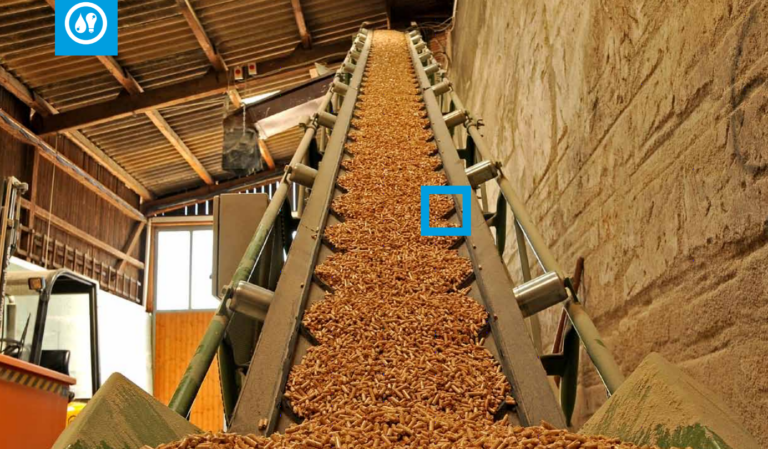
Europe’s largest stand-alone biomass power plant highlights need for increased transparency on the origin of biomass
The official opening of Eneco’s 50 megawatt Golden Raand power plant in Groningen, the Netherlands, on 31 January 2014, will be touted by the industry as another step towards reaching the Dutch sustainable energy commitments. However, if the biomass combusted in the facility is not produced in a sustainable manner, the plant could do the climate and the environment more harm than good. The need for greater transparency in the biomass supply chain remains a major point of concern.
Sustainable energy targets in the Netherlands
By 2020, 14% of energy used in the Netherlands has to be produced from sustainable sources. This is stipulated by the Dutch Energy Agreement that was signed by the Dutch government, the private sector and civil society organisations in September 2013. Reliance on biomass is expected to become a major strategy to achieve this goal, due to the fact that biomass is a relatively inexpensive source of energy that does not require large investments to modify the existing electricity generation infrastructure.
Potential adverse impacts of biomass
However, environmental organisations such as Greenpeace and Friends of the Earth as well as scientists at academic institutions around the globe have repeatedly expressed their concerns about potential adverse environmental and human rights impacts of using biomass for energy production. Such adverse impacts include loss of biodiversity, competition with food crops, land tenure conflicts, deforestation, and even a potential increase in CO2 emissions associated with (indirect) land use change. The extent to which these adverse impacts occur depends largely on how and where biomass is produced.
Low degree of biomass supply chain transparency
In 2013, SOMO conducted research on the origin of biomass that is currently used for electricity generation in the Netherlands. SOMO’s research – detailed in the report ‘From Whence the Wood?’ revealed that the current level of transparency provided by electricity companies in the Netherlands is far below leading international standards. Among electricity generators in the Netherlands, Eneco scored best, providing a greater transparency than its competitors. EPZ, E.ON, GDF Suez, Vattenfall/NUON, and RWE/Essent provided less transparency. Semi-public company EPZ (indirectly held for 70% by the province of Zeeland as well as various Dutch municipalities) disclosed absolutely no information on countries of origin, quantities per country of origin, and information on suppliers, and thus clearly lagged behind on transparency.
Keeping up with standards: transparency essential
To ensure that minimum social and environmental standards are respected throughout the biomass supply chain, energy companies need to conduct due diligence, engage stakeholders, conduct audits of suppliers, and adopt supplier codes of conduct. Here, transparency is key: regular disclosing and reporting on suppliers and the origin of raw materials by energy companies is essential to ensure that social and environmental norms are respected.
Eneco’s transparency performance: from better to best
Eneco has announced that its newly-opened Golden Raand plant will run on wood chips produced in the Netherlands and neighbouring countries. However, it does not disclose the names of all of its biomass suppliers to the public.
Local stakeholders who may be impacted by a biomass supplier’s operations will likely be unaware that the impacts they are experiencing are a result of Eneco’s demand for biomass. By not being transparent about the specific origin of its biomass, Eneco limits the possibilities of local stakeholders to alert Eneco to potential adverse impacts in its supply chain and work toward improvements. Companies such as Eneco – aiming to be true frontrunners in sustainable production of energy – will need to take the next step and provide full transparency into their supply chains in order to ‘know and show’ that they are genuinely committed to sustainable development.
Do you need more information?
-

Joseph Wilde-Ramsing
Advocacy Director
Partners
Related content
-
From Whence the Wood? Published on:
 Joseph Wilde-RamsingPosted in category:Publication
Joseph Wilde-RamsingPosted in category:Publication Joseph Wilde-Ramsing
Joseph Wilde-Ramsing
-
 Civil society organisations push for transformative global investment rulesPosted in category:News
Civil society organisations push for transformative global investment rulesPosted in category:News Bart-Jaap VerbeekPublished on:
Bart-Jaap VerbeekPublished on: -
 The Counter: strengthening the fight for climate justice around the worldPosted in category:Long read
The Counter: strengthening the fight for climate justice around the worldPosted in category:Long read Luis ScungioPublished on:
Luis ScungioPublished on:

